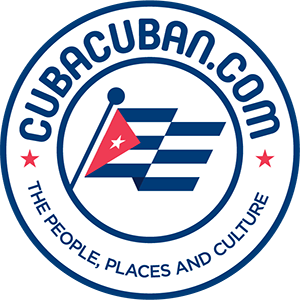As with any trip you plan, a critical element of planning your trip to Cuba is knowing what the money is worth, what it’s going to cost you (in taxes, etc.), and what you can buy duty-free, and who to call if you have any problems. Here are some basic facts about Cuba’s economy:Time Zone:
Cuba’s local time is GMT-5.Emergency number:
Should any emergency situation arise while you’re on the island, call 116 for assistance.Legal tender:
Like other communist states, Cuba has more than one official legal tender. However, the principal legal tender of Cuba is the Cuban “Peso(s)”. In addition to the Peso(s), hotels in Cuban accept US dollars or “divisas” – as they’re also known locally. Finally, the convertible Peso(s) operates as a legal tender for tourist to use. That said, the Peso(s) is the legal tender used by Cubans in their day-to-day lives. However, bear in mind that whilst you may be able to spend Peso(s) when travelling around Cuba, most Cubans would rather see the “greenback”, so try to keep a supply of these with you and don’t rush to change up money into Peso(s) – either convertible of national.Business Hours:
With its Latin laid-back flavor, Cuba has no set rules with regard to opening and closing time. However, most “official” businesses operator between 9a.m. and 5p.m.Taxes:
Cuba has no sales tax/value added tax on goods and services sold in Cuba. However, as a tourist to the island you should expect to be charged a 10 percent “service” charge when buying anything in a hotel or restaurant. You also need to keep in mind that Cuba has a $20 departure tax for people departing from the island – so don’t spend all your money before you get to the airport!Things you can bring to Cuba:
Cuban customs rules permit tourist to bring any personal effects into the country. Such things include: cameras (video, still and digital), laptops, jewelry and sports gear. Aside from these, customs will also let you import 2 bottles of alcohol, a carton of cigarettes, and [10kg] medication: provided that the medication is in its original packet. Although you can import unlimited cash into Cuba, it is usually good practice to declare any cash you import over $5,000 so as to avoid re-exporting this money, when the time comes (and assuming you still have it!). Finally, whilst Cuba’s customs law are fairly lax, it should be noted that properly regulated import tax in Cuba is fairly restrictive, with a 100 percent import duty being due on the first $50 on the value of an item, so be careful that you don’t bring in items that are obviously not going to go home with you.Things you can take home with
In part what you export out of Cuba will depend on where you are travelling to; for example, the United States won’t allow you to import any Cuban goods. That said, traditional items, such as Cuban cigars and rum, can be exported out of Cuba fairly easily and without any undue hassle. The only item that you may need to be cautious of exporting from Cuba is Cuban art; as, in certain circumstances, a permitted is needed in order to export Cuban art. You may also need to heed Cuba’s strict currency control laws: but if you have declared your currency on arrival, this should not prove too onerous.Exchange rate:
Officially, in Cuba at least, the exchange rate for Peso(s) is on a par with the US dollar (i.e. 1=1). However, it would be naive to believe that this official exchange rate was the market rate. Market rates tend to trade at nearer 20 Peso(s) to a US dollar.Exchange bureaus:
The only official exchange bureaus in Cuba are the state run CADECA – Casas de Cambia, which (in Havana, at least) remain open until 9p.m. However, street exchanging of money does exist 9at much more favorable rates), but this is an illicit trade and so usual caution must be taken into account should you wish to use this service.Travelers’ Checks:
Travelers’ checks are exchangeable at all major hotels in Cuba. Keep in mind though that hotels in Cuba include the usual worldwide “commission” on changing travelers ‘checks. In Cuba this commission rate can reach 5 percent of the amount being exchanged, but is usually nearer the 2 – 3 percent range.Credit Cards:
Provided that you are not using a credit card issued in the United States (for whose citizens it is illegal to spend money in Cuba), it is possible to get cash advances on your credit cards at any of the Banco Financiero International (BFI)s around the island. In certain location it is also possible to use your credit card to purchase items, but it should be said that most Cubans prefer to see “real” money – preferably dollars, but even Peso(s) – over credit cards.Automatic Teller Machines (ATMs):
Cuba has a growing network of ATM machines but at this time these machines are not internationally compatible – especially with US issued cards. So, whilst you may be lucky, and find an ATM that works with your card, don’t bank on this system in the same way as you would do elsewhere.Basic costs:
Whilst it is always a difficult call on what constitutes “basic costs”, Cuba’s relatively tourism under-development, comparable with its Caribbean neighbors means that you should not be paying any more than $100 per night to stay at a top of the range hotel, or $15-$50 if you decide to stay in one of the cheaper hotels or Casas. A good meal on the island should not be costing you any more than $20. Transportation, outside of private car hire, is also eminently affordable.Internet:
Although Internet use is becoming more prevalent in Cuba, don’t rely on this mode of communication as being your way to stay in touch with base-camp back home. Also, in those places where Internet is offered, expect to pay excessive prices, of up to $12 per hour, for the privilege.Snail-mail:
Cuba has an intricate, and very good, snail mail postal service. The island also has offices of express mail supplier; such as DHL, so you need to use them.

